A late check-in hotel offers short-term accommodation, with the option for guests to arrive later than the standard check-in time. These hotels need to develop robust policies and strategies around the check-in process.
Late check-ins are important because guests want flexibility. The option to check in at a time that suits them can make a positive first impression, while late check-ins can also serve as an extra revenue stream for hotels.
In this article, you will learn some key strategies that hoteliers can use to implement an effective late check-in policy.
Table of Contents:
- What is a Late Check-In at a Hotel?
- Why is a Late Check-In Hotel Policy Important?
- 8 Best Practices for Managing Late Check-Ins in a Hotel
- Prioritize Clear Communication With Guests
- Create and Provide a 24/7 Check-In Process
- Invest in High-Quality Training and Coaching
- Assign Hotel Rooms Using a Flexible Process
- Create a Late Check-In Policy Document
- Make Effective Use of Digital Notifications
- Leverage Late Check-Ins As a Revenue Stream
- Try to Establish Transportation Partnerships
- Overcoming Challenges With Late Check-In Hotel Services
- Understanding Early Check-In Hotel Solutions
- Exploring Guest Check-Out Optimizaton in a Hotel
What is a Late Check-In at a Hotel?
A late check-in in a hotel is a guest check-in that occurs after the standard check-in time, which is often 2 pm-4 pm. Late check-ins are important because guests may arrive late for numerous reasons, including delayed flights.
By offering a late check-in hotel service, you can still accommodate guests who may arrive outside the standard check-in window. Different hotels will have different procedures in place to deal with late arrivals.
In many cases, late check-in in a hotel is so common that the hotel will simply offer 24/7 check-ins, or a check-in window that extends far beyond 4pm. Some hotels will require guests to let them know if they are expecting to arrive late. This can help to ensure rooms remain reserved and can also assist housekeeping and other hotel departments.
Some hotels also make it easier for front desk staff by providing contactless check-ins, using digital keys and a smartphone app. This effective use of hotel technology provides great convenience for guests arriving late and also means the front desk does not necessarily need to be fully staffed 24/7.
Why is a Late Check-In Hotel Policy Important?
A late check-in hotel policy is important for guests, staff and hotel operations more generally. A robust policy provides clarity on what staff need to do and ensures guests enjoy a smooth check-in process, even if they arrive late.
For hotel employees, a late check-in policy will provide important information about the procedures to follow and can help to make sure the front desk is appropriately staffed. It can improve communication between different departments too, allowing the entire hotel business to operate more efficiently.
Meanwhile, guests also benefit from a clear policy because they know what they need to do to arrange a late check-in. The provision of late check-in options can make it more likely that certain guests will choose your hotel. It can enhance guest satisfaction by ensuring they are able to arrive at a time that matches their travel plans.
Video: What Is A Hotel Check-In Time?
8 Best Practices for Managing Late Check-Ins in a Hotel
In the sections that follow, you can read some key strategies and best practices for a late check-in hotel service.
1. Prioritize Clear Communication With Guests
You should prioritize clear communication with guests about your late check-in hotel services. Be transparent about what your check-in times are, how late check-ins work, and how guests can request a late check-in.
Clear communication with guests is important because it helps to manage expectations. When guests know what they need to do, they can enjoy a pleasant arrival experience, free from unnecessary frustrations.
Include check-in information in confirmation emails, pre-arrival emails and hotel marketing content. Try to make sure there is no real room for confusion and you will make life easier for guests and your hotel employees.
2. Create and Provide a 24/7 Check-In Process
One of the best ways to run a hotel with late check-in is to create a 27/7 check-in process. This will allow guests to arrive at any time and still claim their reserved room in your hotel.
A 24/7 late check-in hotel service will appeal to a large number of guests and may make them choose your hotel over a rival. It is quickly emerging as one of the biggest competitive differentiators in the hotel industry.
There are a range of possible options here, including having staff at the front desk 24/7, using mobile check-ins, offering keyless entry systems, or providing self-service kiosks in the reception area.
Video: Hotel check-in & check-out procedure
3. Invest in High-Quality Training and Coaching
A late check-in hotel service relies on the quality of front desk staff, so training is essential. Focus on preparing staff to check new arrivals in efficiently and deal with the most common issues that may arise.
Training is vital because staff need to fully understand your late check-in policies and procedures. They also need to know how to contend with late arrivals and some of the challenges they may present.
It may also be necessary to teach staff how to resolve issues related to self-check-in technology.
4. Assign Hotel Rooms Using a Flexible Process
Late check-in in a hotel often requires an element of flexibility, and the best approach is to prepare in advance. Try to hold back a room or two that you can turn to in a crisis.
This kind of flexibility is important because late arrivals can make it difficult to determine whether guests have failed to turn up and whether rooms are available to re-allocate. By keeping some spare, you can deal with this.
As an added bonus, operating with this kind of flexibility can also allow you to resolve overbooking situations. You can also potentially offer these rooms to people who want a hotel room at the last minute.
5. Create a Late Check-In Policy Document
It is important to not only create your late check-in hotel policy, but to also document it. Outline what counts as a late check-in, how these check-ins work and what you are going to charge for late check-in privileges.
Having a clear policy is crucial because it means you can refer to this when you encounter issues. It also allows you to provide guests with clear information about what they can and cannot do.
Your policy can be used internally among hotel management and staff, but a version should also be publicly available.
6. Make Effective Use of Digital Notifications
Digital notifications can provide valuable information to staff about when a guest is expected to arrive. Meanwhile, notifications can also be sent to guests, providing updates or useful details.
The value of sending notifications lies in the timely delivery of information. A guest can be told the latest time they can check in, or a staff member can be told when they need to have a room ready by.
Hotel software can be vital for sending internal notifications. Additionally, having your own mobile app is one of the biggest hotel trends and an app can be used to send notifications to a guest’s phone.
7. Leverage Late Check-Ins As a Revenue Stream
A great way to make late check-ins mutually beneficial is to charge a little extra for the option. This still allows guests to benefit from the service, but your hotel gains something from these bookings, too.
Charging extra for late check-in hotel services can improve the financial health of your business. In a competitive industry, it is worth making the most of all of the available revenue streams.
Selling late check-ins as an extra also makes it easier to justify the additional work involved in running this service.
8. Try to Establish Transportation Partnerships
Try to work with transportation companies in the local area to provide services for people who use your late check-in hotel offering. This could include local taxi companies, private car services, and car rental companies.
Collaborating with local transportation companies can generate extra business for them, while ensuring your guests arrive safely. This boosts customer satisfaction and provides a positive first impression.
Explore different solutions in this area, including ride-share businesses and bicycle hire companies. The more options you have to choose from, the easier it will be to provide options for guests.
Overcoming Challenges With Late Check-In Hotel Services
If you are offering late check-in in a hotel, you will need to learn to resolve common issues:
- Overbookings: Consider different options to deal with overbookings. Try to keep a room or two available, use high-quality software solutions, and create partnerships with other hotels.
- Security challenges: Guests using late check-in hotel services can add to security issues. Utilize CCTV and door security systems and ensure adequate staffing to optimize safety in your hotel.
- Expectations: The best way to manage guest expectations is to be as clear and transparent as possible. Communicate your policies to guests via email, on your website, across social media, and through other channels.
Understanding Early Check-In Hotel Solutions
Early check-in and late check-in hotel services can sometimes go hand-in-hand, but this is not always the case. An early check-in service will allow guests to check in before the established check-in time, which is often between 2pm and 4pm. Early check-ins sometimes provide a bigger challenge for housekeeping teams than late check-in options do, but the security challenges can be easier to overcome, as guests are not arriving overnight.
In the “Early Check-in Hotels: Optimize the Guest Experience & Hotel Revenue” article, you can find out everything you need to know about how to operate an early check-in service and make it a success.
Exploring Guest Check-Out Optimizaton in a Hotel
A late check-in hotel will also need to consider the check out process, which occurs when a guest leaves the hotel. This is a crucial part of the customer journey, where billing and financial transactions usually take place. Guests often want a degree of flexibility and hotels also need to ensure the process is as efficient as possible.
In the “Check Out Hotel Processes: Tips to Optimize Guest Check Outs” article, you can read all about how to create a robust, efficient check out process that leaves guests with a positive experience.
Did You Like This Article about Late Check-In Hotel?
You might also be interested in the following articles:
- Mobile Check-In App for Hotels: What Are The Benefits?
- Greeting and Welcoming Guests: How to Make a Great First Impression
- Hotel Door Locks: The Main Lock System Types and Their Benefits
- Hotel Concierge: Learn About Guest Services Representatives of a Hotel
- Late Check-Out Hotel Strategies: A Comprehensive Guide for Hoteliers
Late check-in hotel offerings can be important for guests and may be the difference between someone booking with your hotel instead of with a rival. Guests value flexibility, and if you utilize the strategies outlined, you can implement a successful late check-in service and provide new arrivals with a great first impression.
More Tips to Grow Your Business
Revfine.com is the leading knowledge platform for the hospitality and travel industry. Professionals use our insights, strategies, and actionable tips to get inspired, optimize revenue, innovate processes, and improve customer experience.Explore expert advice on management, marketing, revenue management, operations, software, and technology in our dedicated Hotel, Hospitality, and Travel & Tourism categories.

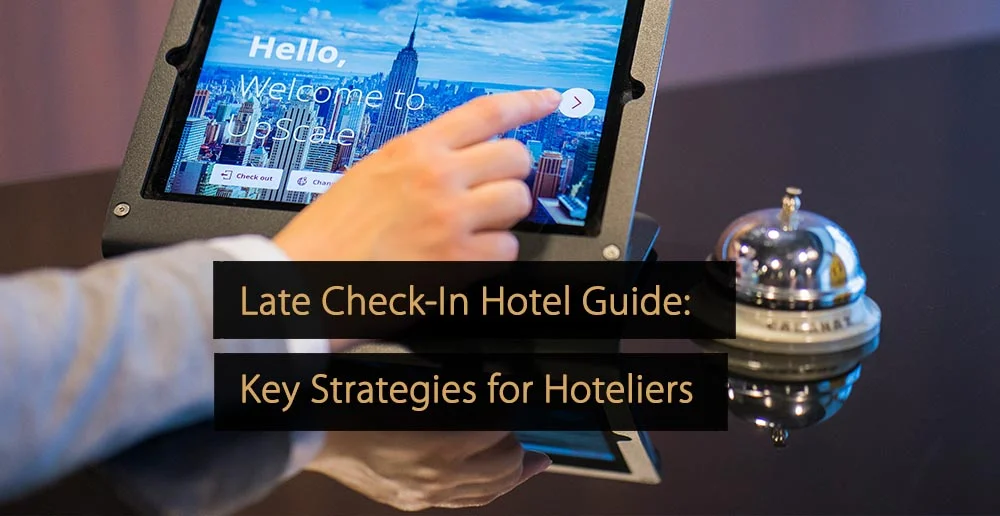
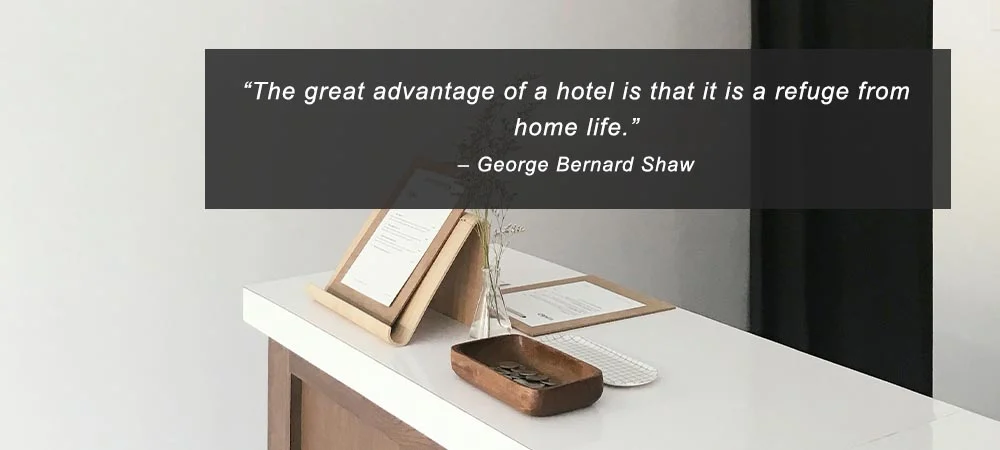
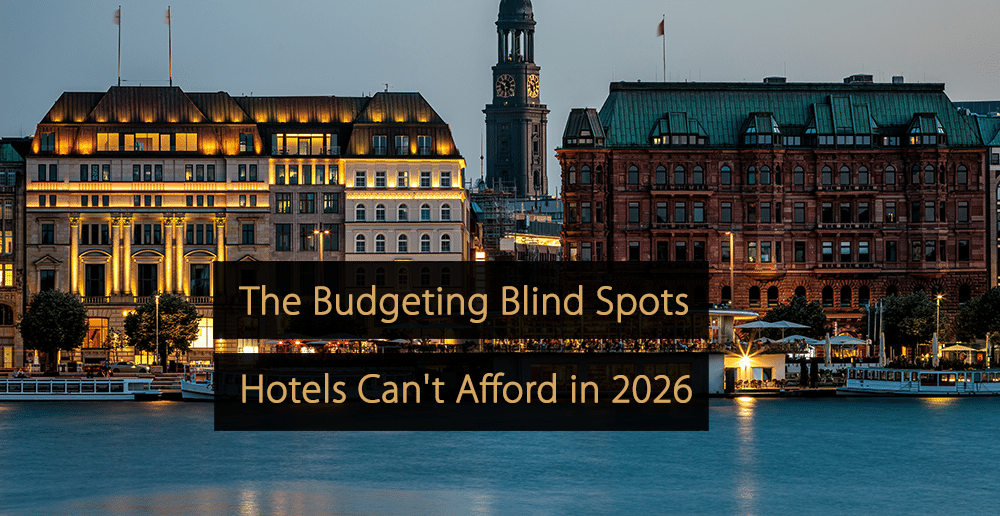
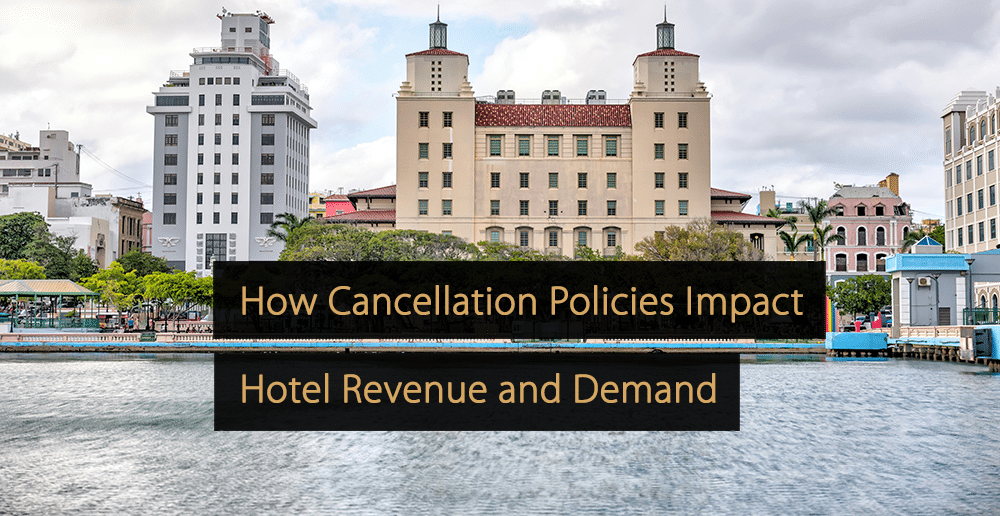



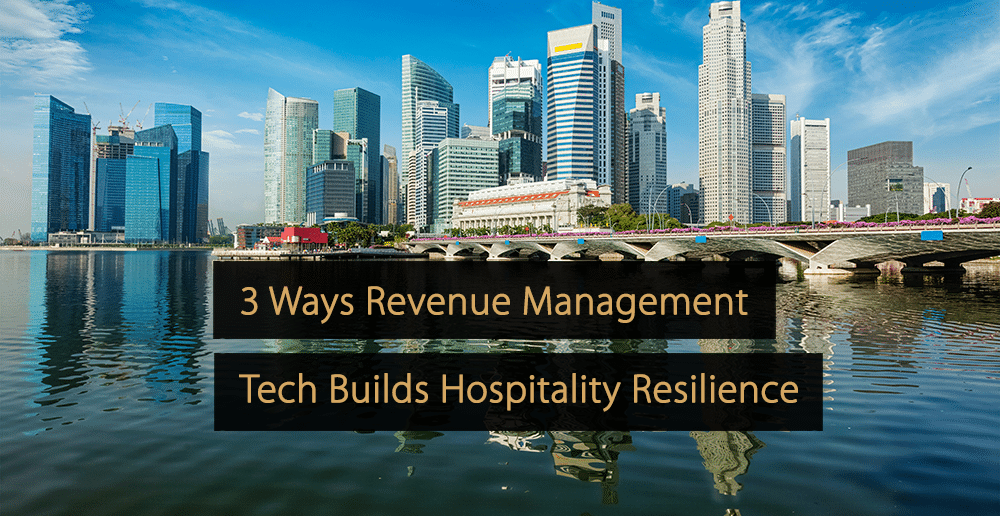
Leave A Comment